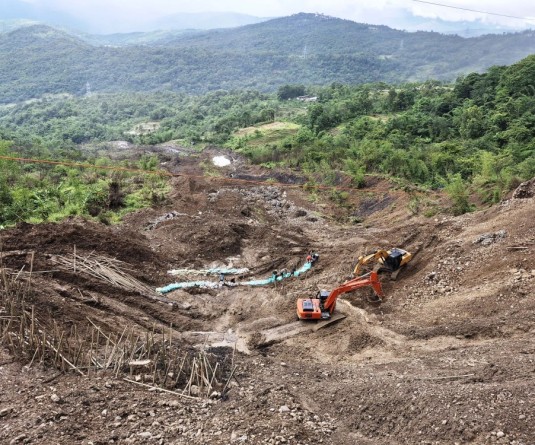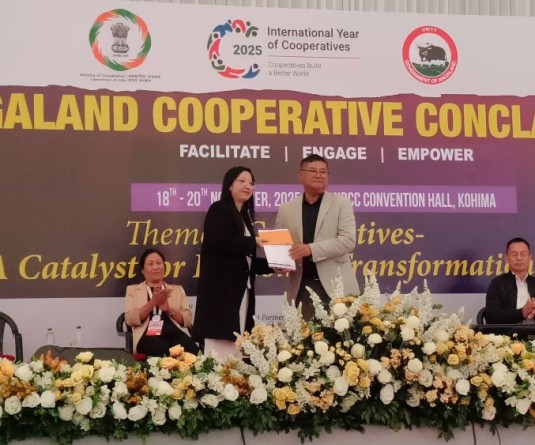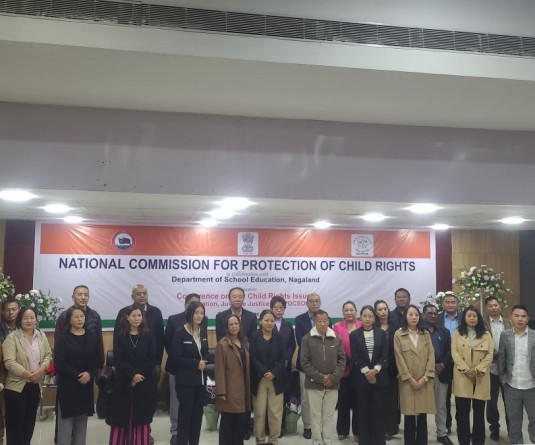
Our Correspondent
Kohima | May 12
With an increasing population and incidences of non-communicable diseases, approximately 40 million health workers will be required worldwide by 2030.
To achieve this required workforce, a number of strategies need to be implemented for nursing recruitment and retention, said L. Watimongla, Principal, School of Nursing, Naga Hospital Authority Kohima in introduction to the theme of this year’s International Nurses Day here- ‘Nursing: A voice to lead- Achieving the Sustainable Development Goals.’
For this, she said, certain issues of concern are to be addressed in the areas of education, remuneration, staffing, skill, working hours and working environment.
The aim of this year’s International Nurses Day is to raise awareness; firstly amongst the nursing profession of what the Sustainable Development Goals (SDGs) are and why they matter, and secondly amongst the population, government and other decision-makers, of the contributions nurses are already making to achieve the SDGs.
“Nurses, as the primary providers of healthcare to all communities in all settings, are key to the achievement of SDGs,” she said.
“Nurses have been at the forefront of caring and working with those who are most vulnerable and disempowered. They work in incredible and sacrificial ways for the betterment of other’s health. The care to improve heath has advanced the nursing profession,” Watimongla said.
Stating that malnutrition affects one in three persons and it has been estimated that it is the underlying cause of 45% of child deaths, she said “Nurses are at the forefront of enabling this goal to be achieved by identifying and treating people at risk of malnutrition, developing new models of care to tackle the problem, developing policies and supporting changes to legislation.”
She said nurses are committed to universal health coverage and this can only be realized with the leadership of the nursing workforce with means involving nurses in more than just clinical practices. It includes involving nursing leadership in policy, in economics and in reform at local, national and global levels.
Meanwhile stating that climate change will have adverse effects, particularly on fundamental determinants of health—sufficient food, clean air, safe drinking water and secure shelter, Watimongla said that nurses and nursing organization are at the forefront to see to the effects of changing climate conditions that is affecting the population.
She said care for the oceans and waterway is crucial as they provide natural resources including food, medicine, biofuels and other products, adding that the health of the planet, people’s health and future food security will depend on how we treat the Earth.
Watimongla said while nurses have a responsibility to work towards SDGs and especially the health related targets, the governments too must have a reciprocal responsibility to provide the means that will enable nurses to contribute usefully to the targets.
“Governments have responsibilities for both national and global policy initiatives whether in achieving and sustaining universal access to health care, recruiting, supporting and retaining the health care workforce or ensuring sustainable development and facilitating and coordinating partnership and collaboration with different sectors and organizations. However, the most important role government has is political leadership that recognizes spending on health and not an economic drain,” she said.
Stressing the need for a change in political mindsets, she said nurses should have a voice that can lead this change. “It is up to us- each and every one of us to be a voice to lead others, our patients, our colleagues, our communities and our government to better health.”






